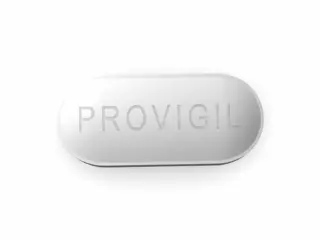Mental Illness
Explore a wide range of trusted medications and supplements to support mental health and well-being. Find effective treatments for anxiety, depression, bipolar disorder, and more, all available for convenient purchase. Prioritize your mental wellness with quality products designed to help you feel your best.
Mental illness affects millions worldwide. Treating these conditions often requires medication. Several drugs are commonly prescribed. Here is a review of popular medications in this category.
Anafranil is a tricyclic antidepressant. It is used mainly for obsessive-compulsive disorder (OCD) and depression. Anafranil works by increasing serotonin and norepinephrine in the brain. It can take several weeks to show full effects. Common side effects include dry mouth, drowsiness, and weight gain. Some patients report dizziness or constipation. It should be used carefully due to its potential for heart issues.
Buspar (buspirone) is an anti-anxiety drug. It is prescribed for generalized anxiety disorder (GAD). Buspar works differently from benzodiazepines, causing less sedation. It reduces anxiety without causing dependence. Side effects may include headache, dizziness, and nausea. Buspar is usually well tolerated. It may take a few weeks to see benefits.
Clozaril (clozapine) is an antipsychotic. It treats schizophrenia when other drugs fail. Clozaril is effective for reducing hallucinations and delusions. It requires close blood monitoring due to risk of agranulocytosis, a serious drop in white blood cells. Side effects include sedation, weight gain, and dizziness. Patients may also experience drooling or constipation. Clozaril remains a key option for treatment-resistant cases.
Compazine (prochlorperazine) is an antiemetic and antipsychotic. It is often used to control nausea and vomiting. It also treats psychotic disorders. Compazine works by blocking dopamine receptors in the brain. Side effects may include drowsiness, dry mouth, and blurred vision. Rare side effects include movement disorders and a drop in blood pressure.
Lithobid (lithium) is a mood stabilizer. It is primarily used to treat bipolar disorder. Lithium helps control mania and prevent mood swings. It requires regular blood tests to monitor levels. Side effects include tremors, increased thirst, and frequent urination. High levels can cause severe toxicity, so careful dosing is essential. Patients must maintain consistent salt and water intake.
Loxitane (loxapine) is an antipsychotic. It treats schizophrenia and other psychotic disorders. Loxitane reduces symptoms like hallucinations and disorganized thinking. Common side effects include drowsiness, dry mouth, and blurred vision. It may cause movement problems similar to those in Parkinson’s disease. Regular monitoring is recommended during treatment.
Mellaril (thioridazine) is an older antipsychotic. It relieves symptoms of schizophrenia. Mellaril acts by blocking dopamine receptors. It has a higher risk of heart side effects, including arrhythmias. Due to this, it is less commonly prescribed today. Side effects can include sedation, weight gain, and dry mouth. It should be used only when other options are ineffective.
Skelaxin (metaxalone) is a muscle relaxant. It aids in relieving muscle pain linked to mental stress or anxiety. Skelaxin works by depressing the central nervous system. It is often used as part of a treatment plan including rest and physical therapy. Side effects include drowsiness, dizziness, and nausea. It is usually well tolerated but should not be combined with alcohol.
Strattera (atomoxetine) is a non-stimulant for ADHD. It helps improve focus and reduce impulsivity. Strattera works by selectively inhibiting norepinephrine reuptake. Unlike stimulants, it has a lower risk of abuse. Side effects include stomach upset, fatigue, and mood swings. It may take several weeks to see full benefits. Regular checkups are needed to monitor blood pressure and heart rate.
Thorazine (chlorpromazine) is one of the first antipsychotics developed. It treats schizophrenia, nausea, and severe hiccups. Thorazine blocks dopamine receptors to reduce psychotic symptoms. Side effects can include sedation, weight gain, and movement disorders. Due to side effect severity, it is now used less often. Patients require close monitoring during treatment.
In summary, these medications play key roles in managing mental illness. Each has unique benefits and risks. Healthcare providers must tailor treatment plans to the individual. Monitoring during therapy helps ensure safety and effectiveness. Proper use of these drugs can greatly improve quality of life for patients with mental health disorders.















